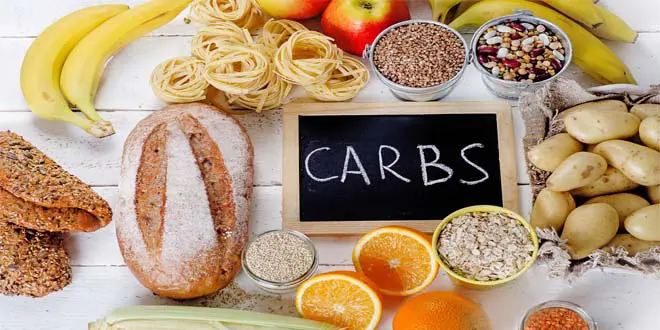If you think about it, our brain works day and night, even when we are sleeping! It’s like an engine which requires continuous fuel in order to function properly. This fuel is nothing but food that you consume. For a car, it’s not important how much petrol or diesel you put in it, but rather what you put. If you put diesel in a petrol car, you will end up spoiling the entire car system.
Similarly, it’s important to focus on what you eat. Because not only does it ensure proper functioning of your bodies, but it is also responsible for affecting your mood.
Did you know? Our brain is about 2% of our total body weight. Studies show that if we extract all the water from our brain now, the residual nutrients like fatty acids, glucose, amino acids and micronutrients influence our mood.
So how does food really affect our mood? Based on food science, research shows that dietary changes affect brain structure, both chemically and physiologically, resulting in a change of mood.
I agree that there are many other factors that can affect your mood. However, we can’t ignore the fact that food is one of the major reasons behind a happy smile and a happy life.
“The food you eat can be either the safest and most powerful form of medicine or the slowest form of poison.”
So let’s talk about how food affects your mood and what you should include in your diet:
Carbs – good or bad?

There are two types of carbs – simple and complex. Our body can easily break down simple carbohydrates and give you instant energy. These can be found in bananas, white rice, potatoes, savory items, bread etc.
When people talk about carbs being harmful for the body, they are often referring to simple carbs because they act like quick-burning fuels. As soon as they enter your body, they increase sugar level and cause an insulin spike. This is the reason why you feel a sudden burst of energy. But as time passes, the insulin level drops down and you end up feeling lazy, dizzy and even irritated.
On the other hand, complex carbs are preferable because they increase insulin slowly and gradually. We can find them in brown rice, oats, sorghum, sweet potato, broccoli. Complex carbs will avoid a quick sugar rush and allow your body to absorb the nutrients slowly while giving you long-term energy instead of a brief spike in your mood.
I’m not saying that all simple carbs are necessarily bad. It depends on where you get them from and the moderation of your carb intake. Don’t forget that when you eat is as important as what you eat. Remember to eat at set intervals of the day.
It’s time to debunk the myth that carbs are bad. Eat in moderation. Only overeating of carbs can affect your mental health and make you feel lazy. But if you focus on maintaining a balanced diet, there is no need to fear carbs.
Protein intake
Protein contains amino acids responsible for the functioning of your brain. Amino acids such as tryptophan are known for bio-synthesizing protein and make melatonin and serotonin. In simple words, melatonin ensures a proper sleep-wake cycle and serotonin is known as the “feel good” hormone which regulates our mood, feeling and happiness.
Lack of happy hormones like dopamine and serotonin could make you feel depressed, irritated, and aggressive. Thus, it is important to include protein in your diet. I would advise you to include protein in every meal through foods like dairy, nuts, legumes, soya, or any form of meat.
But remember to avoid eating oily food at night, because instead of happy hormones your body will release hormones that make you feel bad.
Healthy fatty acids
Research shows that fatty acids are a good helping agent against mood disorders like depression. Seeds (like chia, sunflower, pumpkin), fish products and legumes are rich in omega-3 fatty acids and magnesium. They help improve brain cells, sharpen memory strength, and generate feel good hormones in our body.
On the other hand, people who start their morning with a cup of coffee feel instantly ready to conquer the day. But what actually happens is that the effects of caffeine slowly drain out, leaving your body tired and reduces the alertness by the end of the day. That’s why I advise you to eat antioxidant rich food in the morning, with a banana and some nuts to give you energy for the entire day!
Micronutrients are important

Micronutrients like zinc, copper, magnesium, selenium can be found in nuts or seeds (like sunflower, watermelon, pumpkin) which improve brain cell functioning. Throughout your day, ensure your diet includes all kinds of nutrients and vitamins. Eat a variety of foods.
Please don’t create a checklist in your mind but rather focus on creating a balanced dietary routine.
Avoid processed and packaged food
They are known to reduce the power of our cells. Processed and packaged food contain high amounts of sugar, sodium, and bad fats. Not only they are harmful for our body but it could also lead to symptoms of depression and anxiety. Unhealthy eating can cause mood swings, promote inflammation, and can even impair brain functioning.
However, this doesn’t mean becoming a food police and avoiding certain food items. Instead of creating fear, focus on a “clean” dietary routine with frequent cheat meals. Like I keep saying, moderation is the key.
Beyond diet and nutrition, there are other factors that can affect our mood. For example:
- Sleep properly – a proper sleep ensures good functioning of our body. Inadequate amounts of sleep will surely lead to a bad mood.
- Don’t skip meals
- Share your feelings – the more you keep your feelings trapped, your mood swings will worsen in the long run.
- Don’t react to situations, instead respond to them. Aim to create a mind, body and soul connection.
- Any form of physical exercise is a must- whether it’s yoga or gym training.
- Think positive – allow yourself to feel negative emotions but you don’t need to hold onto them forever. Trust your body and allow yourself to relax and enjoy.
- Have patience – We have started to adapt to a sedentary lifestyle where we want everything easily.
- Once you adopt the healthy habit of being patient and calmly responding to situations, you’ll realize that no task is difficult, and you won’t spoil your mood because of one simple thing.
Final words
To lead a stress-free life, all you need to do is focus on adopting simple diet and lifestyle modifications.
Start by paying more attention towards how different foods make you feel. Try adopting a “clean” diet for two weeks where you avoid all types of unprocessed food, especially sugar. It will help you feel physically, emotionally and mentally healthier. After two weeks, you can slowly add them into your diet and you’ll realize that you were better off without them. Have a healthy and happy life!


Suggest me which nuts should I eat in morning and the way to intake them
Soaked and peeled almonds
[…] Source URL: https://santushtibylavleen.com/blog/can-food-really-affect-our-mood-diet-and-lifestyle-changes-for-men… […]
Superb presentation of vimp information.Tku